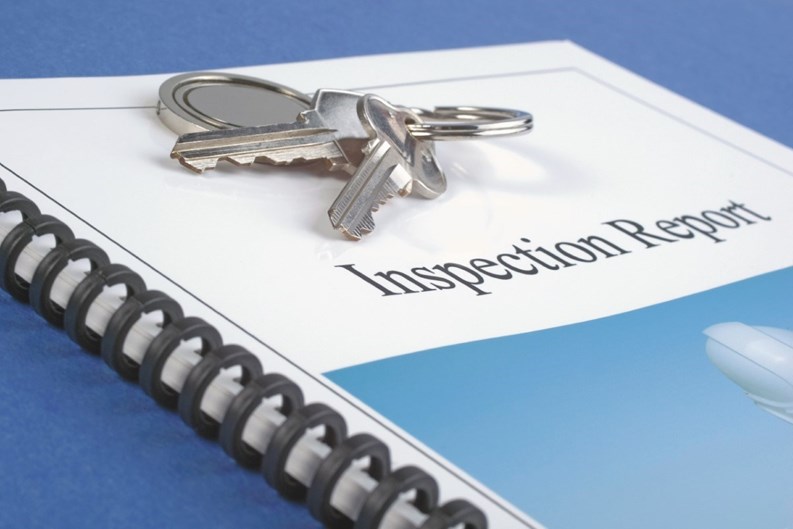You're ready to sell your condo, and you're a little worried about that mold problem in the bathroom or the noisy pipes or the water stain under the bedroom window. Anyone seriously shopping for your unit will hire a home inspector to check the place out before the sale closes. Should you worry about what the inspector might find?
The little construction defects that you've learned to accommodate over the years suddenly become in-your-face issues when it's time to move and sell your property. Who'd have thought that dryer vent hose with the questionable installation would become a point of contention in price negotiations?
Who needs these extra problems when you're already stressed out, in the process of moving to a new home?
To lower the stress factor, it may be prudent to be pre-emptive. One New England inspector reports that some sellers do take a proactive approach. Until a few years ago, states Joe Rizzo, president of Tiger Home Inspections of Braintree, Massachusetts, "we did a lot of seller's inspections… to find out what would come up and avoid surprises" that might quash a sale. During the real estate boom that peaked over a year ago, however, properties in less-than-perfect condition were selling for inflated prices and sellers weren't so worried about fixing things up to close a sale.
Inspections ordered by the seller dropped off during the boom, Rizzo relates, but they may be more popular now that it's become a buyer's market. With buyers looking at more inventory, sellers must research every detail about their property, for a firm foundation on which to negotiate pricing.
And careful pricing is now all-important. Albert Innamorati, owner of Abbey Inspection Services of Carlisle, Massachusetts, agrees that homeowners need every tool available to price their properties realistically. He reports that he is seeing "appraisals that don't match the asking prices" of units for sale, and he advises condo sellers "to make sure [your property] is priced reasonably."
Most of the time, inspections are done "strictly by the buyer… it offers some safety nets," and a mortgage application virtually always requires a home inspector's report. Buyers should order an inspection even if a mortgage lender is not involved, he adds.
However, to avoid "contractually pressured" issues from cropping up—and stalling a closing —Innamorati also recommends that sellers obtain a "pre-listing inspection… to help the seller determine what might come up –and avert difficulties. It helps to have problems documented up front, so there's less liability. Sellers can then offer buyers a reasonable amount of information to help them make a decision."
He contends that condo owners are in a unique situation. The sale of each unit depends on the appeal of the entire development, "especially now [in an unsure market] when you need everything to be perfect."
Getting "everything perfect" may be a challenge for condo owners, who depend on their community association to keep all common areas attractive—with value added. The community's entire property—from sidewalks to roofs—effectively provides the all-important "curb appeal" for any unit that's for sale.
GETTING ASSOCIATIONS TO ORDER INSPECTIONS
To help associations analyze their capital spending and maintenance schedules, Rizzo recommends hiring a home inspector. "Prior to an annual meeting [of the association board of directors] we'll do an inspection on all common areas," he states, to ascertain what really needs fixing, and what doesn't. While associations may depend on standard schedules for roofing, mechanicals or even pavement sealing, an inspector can figure out the actual lifetime for these major capital improvements.
"The inspection, and complete report for the board of directors," he says, "costs anywhere $350 to $1,000," depending on the community's size. The inspection can catch problems before they escalate, or allow a community to put off an upgrade when things last longer than expected. "I don't understand why [associations] don't do them more often," Rizzo notes.
An association that fine-tunes its maintenance this way can be a selling point for unit owners. Savvy buyers will be researching the condo association's capital fund and maintenance schedules, and sellers should be prepared to provide that information.
Then there's the liability factor. And in Massachusetts at least, it's the law: if you're aware of it, you must disclose it, says Rizzo. That's a law for anyone selling a property that may need any kind of repair.
"Some realtors routinely order a seller's inspection," he states, "and they display the report prominently on their website and in the unit during showings. A full disclosure like this is not a bad route… It shows good intent [and] an honest business deal" by the broker and selling parties.
Plus, Rizzo states, "an inspector is trained to notice what most people are not trained to see. He serves as a detective, looking for existing or potential problems, and with no vested interest in the sale of the property, he provides an objective, diagnostic report.
"People who live in a house get accustomed to the property and may not see conditions as shortfalls that a potential buyer might," he continues. "The inspector takes you through areasyou wouldn't ordinarily consider."
Rizzo contends that whether or not you do all repairs or upgrades according to the inspector's report is a choice the seller has to make. Either way, full disclosure will contribute to a reasonable asking price, a good-faith transaction, and subsequently a quicker, less-stressful sale.
Marie N. Auger is a freelance writer who lives in Westminster, MA.





Leave a Comment